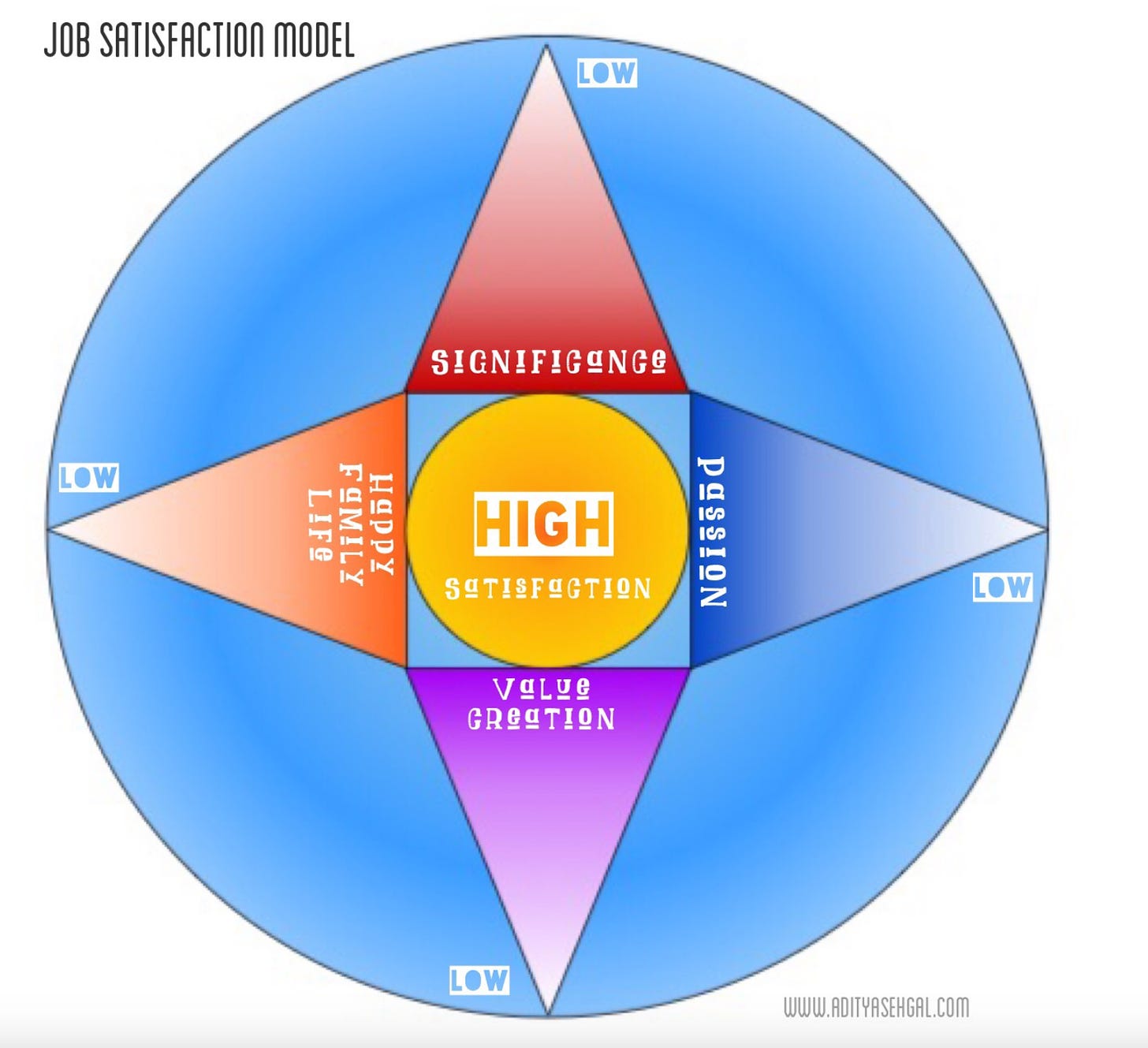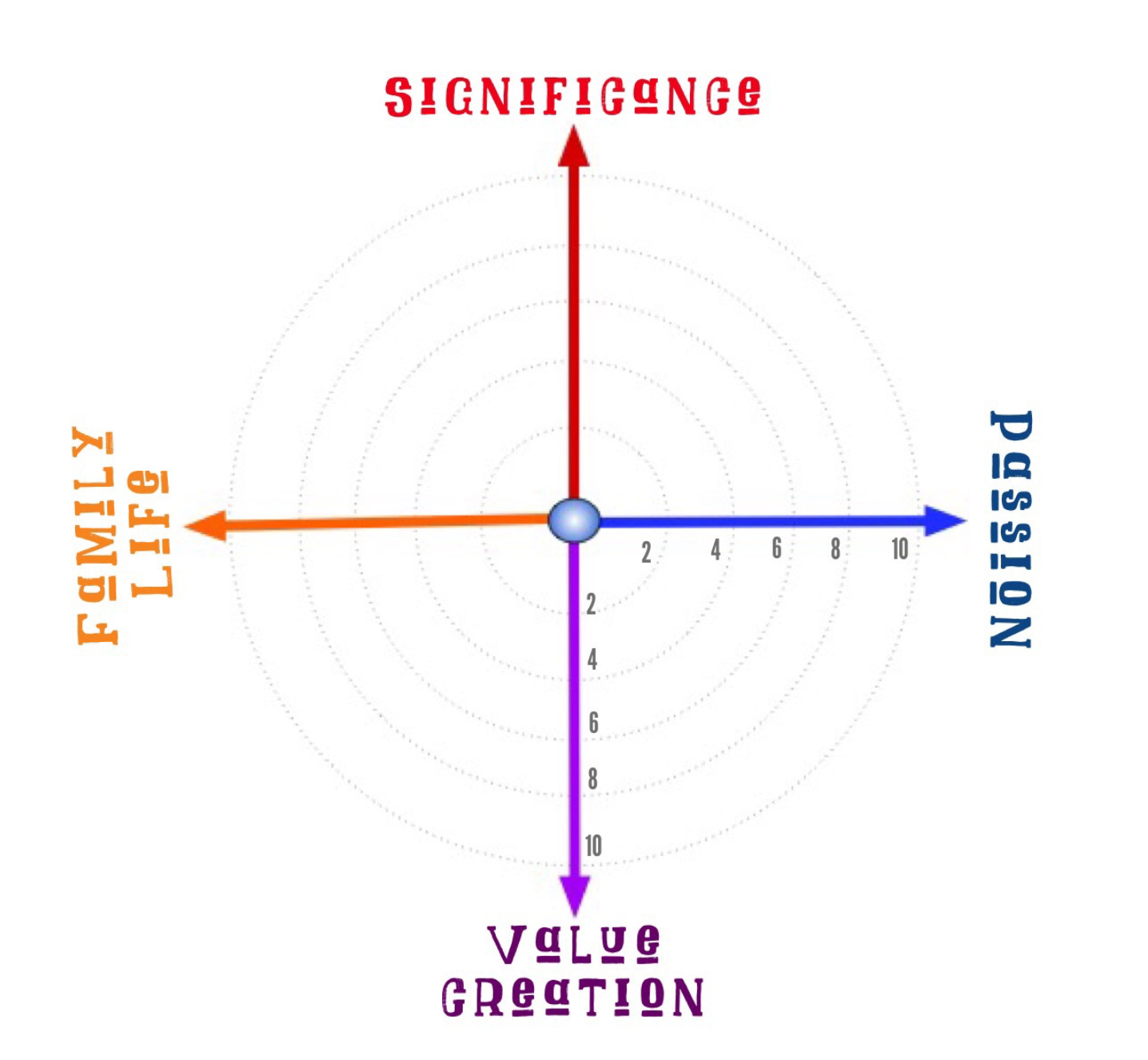The job satisfaction framework
Adjusting the levers that drive your satisfaction in work and life
When I was younger, I believed that my job satisfaction depended on how much I earned.
When I retired, my last year's salary was 2118 times my first year's - i.e. my salary compounded at 33% per year over 27 years.
I now realise that I felt thrilled every time my salary went up, but this happiness was short-lived.
The cycle went like this: I was dissatisfied at the time of the pay rise. Then, if I got a good rise, I felt thrilled. At the end of the year, I was again as dissatisfied as I had been the previous year. And so on.
Looking back, my positive memories of my twenty-seven years in one company are not about how much money I made but are instead about my colleagues and family, the lifelong relationships I built, how I developed as a person and the difference I felt I was able to make to the business through my actions.
In his seminal book Drive, Daniel Pink argues that autonomy, mastery, and purpose drive true motivation rather than external rewards like money.
Many of us will spend more time working at our jobs than with our families. We deserve to work in jobs that give us happiness and satisfaction.
Many frameworks talk about job satisfaction, but I tend to look at it through four lenses, which I summarise in this model:
Rate yourself on the four parameters of this model on a scale of 1-10.
Significance: does your work matter? To yourself, to the world, to anyone? Do you find purpose in your job? Do you have the autonomy to make a difference?
Passion: do you love what you do? Does mastery in your work put you in 'flow'?
Value creation: are you creating value (monetary and non-monetary) for yourself and your organisation?
Family/Relationships: do you have a happy family life/positive relationships?
Plot where you stand today on the grid below. Ideally, you want a balanced model and high scores on all four elements—
Consider what you need to change if the model is asymmetrical or you score lower than seven on any attribute.
Repeat this exercise every year at the time of your performance review - which areas do you need to work on to stay happy and satisfied? How will you discuss these needs with your boss or board (or with yourself)?
Plot both the old and new jobs on the grid if you are considering a job change. You might be surprised by the differences. On what attributes is the new job better?
When I decided to retire, I chose to reduce my score on value creation and significance (at least in the short term), but I more than made up for it by improving my scores on following my passions and spending quality time with friends and family. Spending two beautiful years with my son before he went away to university was priceless - and in the big scheme of things, it added much more satisfaction than I lost by choosing to earn less for some time.
Additional reading:
You can find an animated video on Daniel Pink’s book here
Check out my earlier framework on happiness here
If you enjoyed this post, check out some of my other Frameworks on the Fast Frameworks Substack:
Fast Frameworks - A.I. Tools - Suno.AI
The Set Point Framework for Habit Change
The Plants Vs Buildings Framework
Spatial computing - a game changer with the Vision Pro
The 'magic' Framework for unfair advantage







This framework is so clarifying and is such a helpful and easy one to implement. I see shades of Ikigai; at the same time, your decision to lend it the shape of a wheel makes it at once visual and memorable.
I can see High Significance and High Value Creation. Example - you work in the non-profit sector, perhaps you don't earn a lot but the sense of fulfilment from seeing the difference your contribution makes to the world (non-monetary value creation) more than makes up for it.
Can also imagine Low Sig-High Value = boring job that pays too well. Or Low Sig-Low Val = admin work that neither pays well nor has an impact and hence can be easily automated
My sense is that value creation naturally follows high significance upward. I've this image of Van Gogh struggling to make ends meet but happy that he was doing his life's work. So, my question is, What would be an example of High Significance and Low Value Creation?